Immun-C
₨3500
Your daily all-natural antioxidant boost!
- Supports Healthy Immune System
- Improves iron absorption into blood
- Essential for Growth & Development
- Antioxidant Benefits
- Enhances Energy Levels
- Description
- Reviews (0)
Description
COMPOSITION:
Each ml contains:
Ascorbic Acid (Vitamin C) 100 mg.
Product Conforms to Natural Origin.
DESCRIPTION:
Immun-C contributes to the formation of collagen and correct function of blood vessels, HOC, bones, cartilage, gums, skin and teeth. It also helps in the normal function of metabolism, H2 the nervous system and psychological function. It’s a powerful antioxidant who protects cells from oxidative damage and improves the absorption of iron for reduce fatigue and tiredness and enhance Immunity.
CLINICAL PHARMACOLOGY:
In humans, an exogenous source of ascorbic acid is required for collagen formation and tissue repair (Ascorbic Acid) by acting as a cofactor in the post translational formation of 4-hydroxyproline in -Xaa-Pro-Gly- sequences in collagens and other proteins. Ascorbic acid is reversibly oxidized to dehydroascorbic acid in the body. The vitamin is involved in tyrosine metabolism, conversion of folic acid to folinic acid, carbohydrate metabolism, synthesis of lipids and proteins, iron metabolism, resistance to infections, and cellular respiration.
Pharmacokinetics:
Absorption: single intravenous dose of 1000 mg ascorbic acid (5 times the largest recommended single dose) infused over a 30-minute period. The mean peak exposure to ascorbic acid was 436.
2 pM and occurred at the end of the 30-minute infusion
Distribution: Ascorbic acid is distributed widely in the body, with large concentrations found in the liver, leukocytes, platelets, glandular tissues, and lens of the eye. Based on data from oral exposure, ascorbic acid is known to be distributed into breast milk and crosses the placental barrier.
Elimination: When the body is saturated with ascorbic acid, the plasma concentration will be about the same as that of the renal threshold; if further amounts are then administered, most of it is excreted in the urine. When body tissues are not saturated and plasma concentration is low, administration of ascorbic acid results in little or no renal excretion.
Metabolism: A major route of metabolism of ascorbic acid involves its conversion to minaty oxalate, presumably through intermediate fonnation of its oxidized product, dehydroascorbic acid. Excretion There is a renal threshold for ascorbic acid (Vitamin C); the vitamin is excreted by the kidney in large amounts only when the plasma concentration exceeds this threshold, which is approximately 1.4 mg/1 00 mL.
Pharmacodynamics:
Ascorbic Acid (vitamin C) is a water-soluble vitamin indicated for the prevention and treatment of scurvy, as ascorbic acid deficiency results in scurvy. Collagenous structures are primarily affected, and lesions develop in bones and blood vessels. Administration of ascorbic acid completely reverses the symptoms of ascorbic acid deficiency.
INDICATIONS:
Vitamin C contributes to the formation of collagen and correct function of blood vessels, bones, cartilage, gums, skin and teeth. It also helps in the normal function of metabolism, the nervous system and psychological function. It’s a powerful antioxidant who protects cells from oxidative damage and improves the absorption of iron for reduce fatigue and tiredness.
DOSAGE AND ADMINISTRATION:
Take daily with juice, water or directly in mouth.
3 months -5 years: 10 drops per day.
Older than 5 years: 20 drops per day.
CONTRAINDICATIONS:
No absolute contraindication
DRUG-DRUG INTERACTIONS:
Ascorbic acid may acidify the urine and lower serum concentrations of amphetamine by increasing renal excretion. It has been reported that concurrent administration of ascorbic acid and fluphenazine has resulted in decreased fluphenazine plasma concentrations. Ascorbic acid is a strong reducing agent, it can interfere with numerous laboratory tests based on oxidation -reduction reactions (e.g. glucose, nitrite and bilirubin levels, leukocyte count, etc.).
OVER DOSAGE:
Overdose with ascorbic acid may cause nausea, vomiting, diarrhea, facial flushing, rash, headache, fatigue or disturbed sleep. If overdose of ascorbic acid occurs, immediately discontinue administration and treat symptoms and signs of overdose.
STROAGE GUIDELINES:
Protect from light and excessive heat. Store in a cool and dry place below 30°C Keep out of reach of children.
PRESENTATION:
Immun-C drops is available in bottle pack of 30ml.

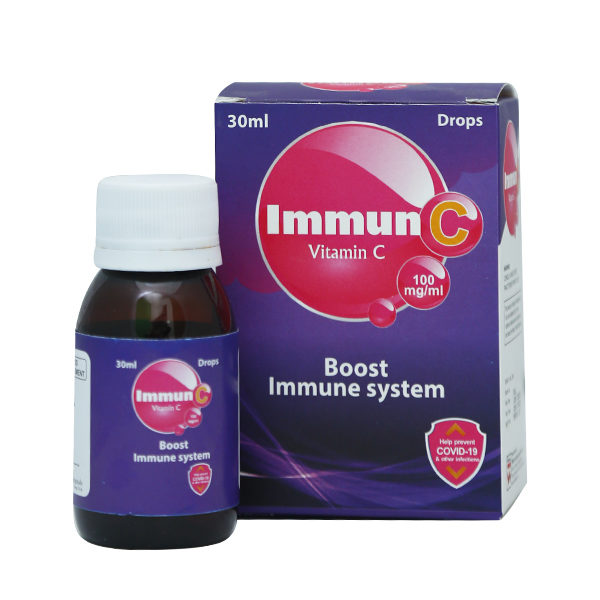
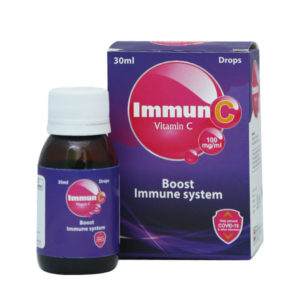
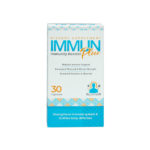
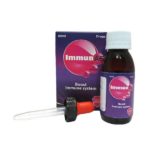
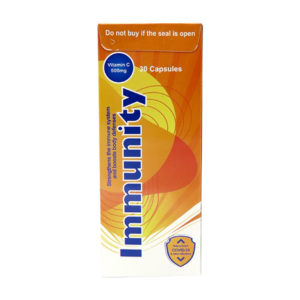
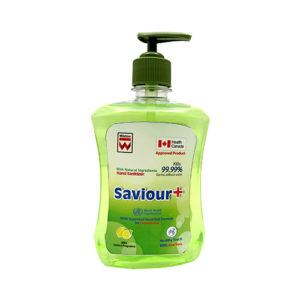
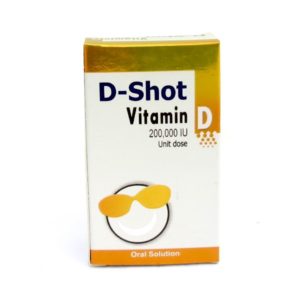
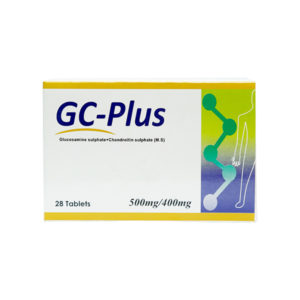
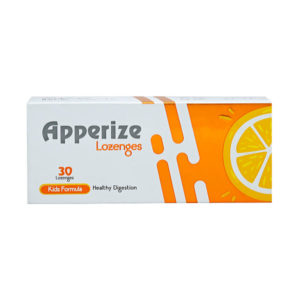
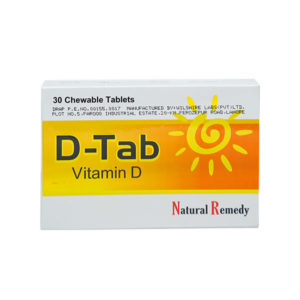
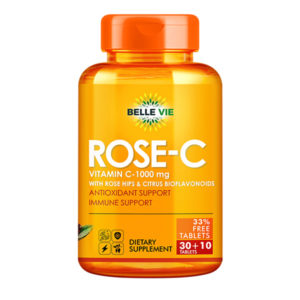
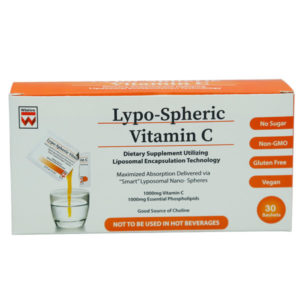


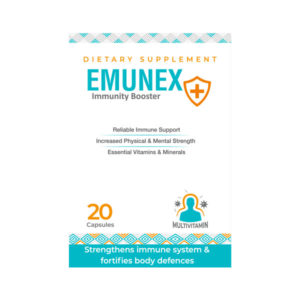

Reviews
There are no reviews yet.